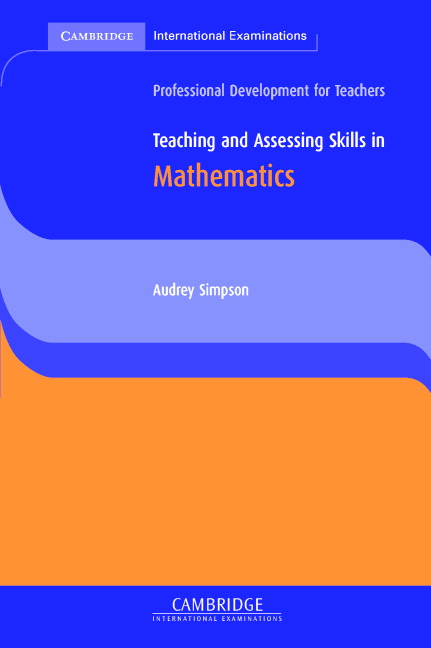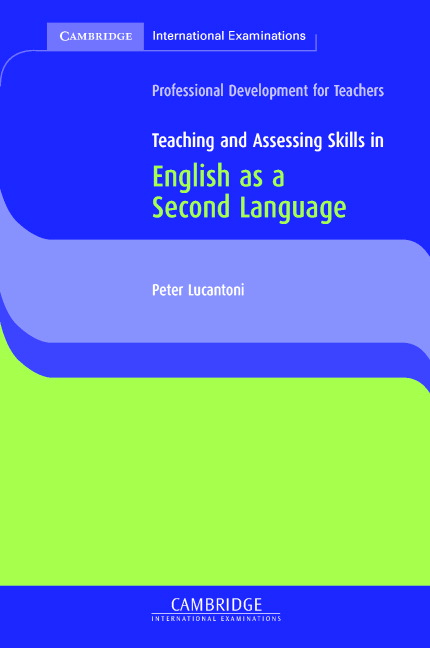Teaching and Assessing Skills in Mathematics
Overview
Professional Development for Teachers is a series of handbooks that offer accessible guidance for teachers around the world.Teaching and Assessing Skills in Mathematics provides clear practical and up-to-date advice on teaching and assessing skills across a range of core subject areas for IGCSE and O Level; the book can also be used by teachers delivering local syllabuses in the subject. Teaching and Assessing Skills in Mathematics offers ideas and strategies for effective classroom practice, the setting of coursework, assessing students' work and the integration of different skills. Readers can 'dip into' the book to read up on a particular topic or approach and the material is relevant to both new and experienced teachers alike. All authors in the Professional Development for Teachers series are experienced teachers, teacher trainers and examiners.
Features
- Activities for teachers
- Suggested activities for students
- End-of-chapter questions
- Lists of resources (including books, websites and other useful material)
- Glossary of terms
Contents
- Introduction
- Part 1. Communication in Mathematics:
- 1. The spoken and written language of Mathematics
- 2. The symbolic language of Mathematics
- Part 2. Practical work in Mathematics:
- 3. Using a calculator
- 4. Trigonometry
- 5. Graphs
- 6. Transformations
- Part 3. Planning and preparing the Mathematics course:
- 7. Planning the order of work
- 8. Building worksheets with graded examples
- 9. The role of the answer sheet
- 10. Photocopiable sample worksheets
- Part 4. Problem solving: Part 5. Revision and preparation for the examination
- 11. Construction of students' notebooks of definitions and formulae
- 12. Using mnemonics and other devices
- 13. How to maximise marks by avoiding the common pitfalls
- 14. The use of past examination papers
- Conclusion
Brighter Thinking Blog
Keep up to date with the latest classroom tips and educational trends from our brighter thinkers.
Visit the blogCatalogues and Ordering
Looking for something in particular or just browsing? View our catalogues to see our full range of print and digital books.
View and downloadAdvice on useful tools
Advice on useful tools, activities and timetabling from teachers experiencing school closures.
Cambridge GO
All our supporting resources have now moved to Cambridge GO – the new home for your Cambridge digital content.
Listen to our podcast
Listen to our podcast to discover teaching inspiration & advice from leading educational thinkers.








